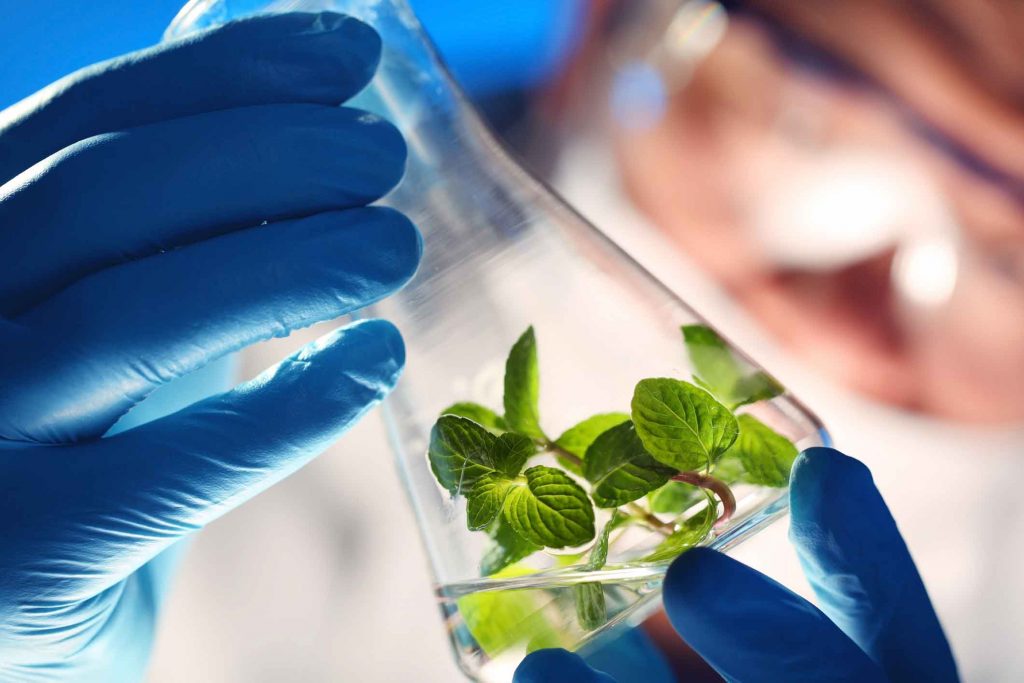Chemistry matters. Scratch that: chemistry is matter. It’s the study of how substances behave, interact and can be transformed. That’s some powerful knowledge right there. Understanding chemistry is a skill that has so many potential applications. This means that if you study chemistry, a world of career opportunities opens up to you. So, to get the bunsen burner of your mind bubbling with ideas, let’s take a look at some careers in chemistry that could matter to your future.

#1 Forensic chemist
Imagine using your science skills to help solve crimes. That’s exactly what a forensic chemist does. In this job, you’ll use a variety of techniques to determine the presence and type of materials at a crime scene. Now, most of the time, you won’t actually be at the scene – it’s more of a lab-based role – but you will get to investigate the unknown and contribute to the hunt for justice.
You could perform toxicology tests. Use spectrometry to determine different types of organic compounds at the scene. Analyse blood and body samples. Identify chemicals used in explosions or arson. If a crime has occurred, whether against a person, the environment or even a building or infrastructure, forensic chemists help get to the bottom of it.
#2 Patent examiner
Did you know that Albert Einstein once worked as a patent examiner? That’s the kind of company you’ll be keeping in this career. A patent examiner works at the leading edge of innovation. You’ll examine applications for patents for new products and innovations. Using your scientific knowledge you’ll assess inventions to determine if they meet legislative requirements, will be able to be used for the applications the inventors claim for them, and ensure intellectual property rights are correctly applied.
It’s an important role as innovation is one of the key drivers of the economy – and your analytical, technical and conceptual knowledge will play a crucial part in that.
#3 Science writer
Science writer is one of the crucial careers in chemistry for spreading knowledge and communicating ideas. Combine your scientific mastery and your way with words to translate complex ideas for a general audience, craft the textbooks that will help the next generation of chemists start their journeys of discovery, or become a reporter digging into the stories that matter.
You could work for newspapers, magazines, industry in-house, publishers or websites. Communication + chemistry = a rewarding career.
#4 Environmental chemist

Combine your passions for science and for the environment. Essentially, environmental chemists look at how chemicals move through air, soil and water – and how they interact with each other and natural matter. As well as how their presence can impact humans, animals and ecosystems. You’ll analyse situations where potentially damaging incidents have occurred, as well as advise businesses and other organisations on ways to reduce risks.
Environmental chemists work across so many different fields. You could investigate how industrial sites affect surrounding groundwater supplies. Look into what happens to household products that get flushed down the drain. Monitor factory emissions and analyse how they affect air quality and impact illness rates. Make sure environmental regulations are applied. Advise farmers how to dispose of inorganic waste, rather than allowing it to seep into the soil. It’s all about minimising negative impacts and ensuring our environment doesn’t get damaged – or damage us.
#5 Flavour chemist

Ever wondered how your favourite foods and drinks get to be so darn delicious? Enter flavour chemists. They are the lab-based scientists who analyse how ingredients affect our senses of smell and taste. And how to combine them to produce delicious tastes, as well as improve things like the longevity of foodstuffs. You could work with natural compounds, looking to get just the right balance of flavours, and also use your scientific skills to create an entirely new taste!
Flavour chemists can also investigate how elements in food production, such as heating, canning, freezing and even packaging, affect the quality of food that ends up on your dinner table. And if food doesn’t do it for you, but you’re still interested in flavour chemistry, you could work in industries ranging from pharmaceuticals to pet foods (though you won’t have to taste test there).
#6 Quality control chemist
We have standards for a reason. Primarily to keep people safe. As a quality control chemist, you’ll ensure that pharmaceutical, manufacturing and chemical products meet their required safety and quality standards. To do so, you’ll conduct rigorous tests to analyse the composition of products – and make sure what a company says is in it (or isn’t) actually is. You will also analyse data and produce comprehensive reports to convey your findings to regulatory authorities.
Play a key role in keeping consumers safe, making products reliable, holding industry to account and enforcing the rules.
Careers in chemistry – your starting point
We’ve barely scraped the surface of the petri dish of ideas for careers in chemistry. But this selection should give you an idea of the huge range of possibilities out there if you’re passionate about chemistry and want to make it your vocation.
And the best way to put yourself on the science career path you want? Get a degree. Charles Sturt’s Bachelor of Science gives you the very best foundations in scientific theory and practice. Then you can major in chemistry, honing your skills for a seriously rewarding chemistry career.
Chat to our team of uni advisers for more info.



You must be logged in to post a comment.